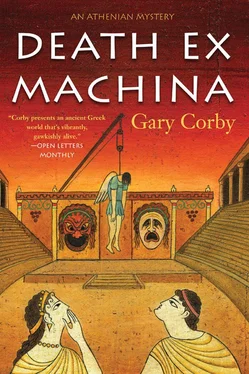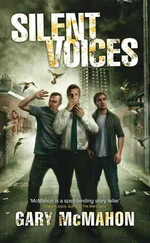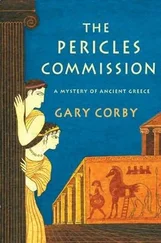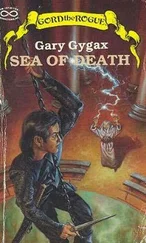Gary Corby - Death Ex Machina
Здесь есть возможность читать онлайн «Gary Corby - Death Ex Machina» весь текст электронной книги совершенно бесплатно (целиком полную версию без сокращений). В некоторых случаях можно слушать аудио, скачать через торрент в формате fb2 и присутствует краткое содержание. Год выпуска: 2015, ISBN: 2015, Издательство: Soho Press, Жанр: Исторический детектив, на английском языке. Описание произведения, (предисловие) а так же отзывы посетителей доступны на портале библиотеки ЛибКат.
- Название:Death Ex Machina
- Автор:
- Издательство:Soho Press
- Жанр:
- Год:2015
- ISBN:978-1-61695-520-5
- Рейтинг книги:3 / 5. Голосов: 1
-
Избранное:Добавить в избранное
- Отзывы:
-
Ваша оценка:
- 60
- 1
- 2
- 3
- 4
- 5
Death Ex Machina: краткое содержание, описание и аннотация
Предлагаем к чтению аннотацию, описание, краткое содержание или предисловие (зависит от того, что написал сам автор книги «Death Ex Machina»). Если вы не нашли необходимую информацию о книге — напишите в комментариях, мы постараемся отыскать её.
Death Ex Machina — читать онлайн бесплатно полную книгу (весь текст) целиком
Ниже представлен текст книги, разбитый по страницам. Система сохранения места последней прочитанной страницы, позволяет с удобством читать онлайн бесплатно книгу «Death Ex Machina», без необходимости каждый раз заново искать на чём Вы остановились. Поставьте закладку, и сможете в любой момент перейти на страницу, на которой закончили чтение.
Интервал:
Закладка:
She wasn’t the only one to have started early. Many of the travelers who passed through the gate were already in their best, brightest clothes. Complete strangers talked to one another, smiled and laughed at each others’ jokes. Even the air we breathed was in a party mood. The one thing you are guaranteed to find at any gate in Athens is donkey droppings, yet on this day the aroma was fresh and pleasant. Diotima said it was because Gaia, who ruled the Earth, wished Dionysos well. I suggested it might have more to do with the frequent showers we’d been having. The rain kept down the dust. Diotima replied that was Gaia’s way of arranging things.
We walked north up Tripod Road. Both sides were lined with three-legged braziers. They were the trophies given to previous winners at the Great Dionysia, each erected along this road, with a plaque, for the passersby to admire and for the victors to gloat. One of those trophies belonged to Pericles. He had been the choregos -the producer-of a winning play fourteen years ago. The truth is that Pericles had won because he’d hired Aeschylus to write the script. When you’re Pericles, you can afford the very best. He was inordinately proud of that achievement. Every day since, Pericles had sent a slave to polish his trophy.
We turned left just before the Acropolis, onto a street that was well kept but that had seen recent heavy use. It was Theater Road, and right before us was the Theater of Dionysos. The Acropolis towered above, directly behind the theater.
A wooden wall painted in blues and reds blocked the view of the backstage. Men clustered at this wall. As we approached, we could hear them arguing with tired voices. The way they stood with shoulders bowed, I guessed they’d been at it for some time.
“… and I tell you again, Sophocles, we’re not going in there until the ghost is removed.”
“I remind you once more, gentlemen, there are no such things as ghosts.”
The man who didn’t believe in ghosts was of middle age, with a long face that was well bearded. I thought he must buy his clothes from the same place as Pericles. Both of them were top-notch in respectable fashion. This man must be the one of the playwrights, or a choregos.
The argument broke off when Diotima, Socrates, and I stopped before them.
“Who are you?” one of the men asked. He was dressed in an exomis , typical clothing for an artisan. I guessed he must be a stagehand. I preferred an exomis myself because it left my arms and legs free to move.
“Nicolaos, son of Sophroniscus,” I said. “Pericles asked me to look into this ghost.”
The well-dressed man looked at me oddly.
“You’re going to get rid of the ghost?” someone else asked. I would need to learn all their names before this was done. For now I thought of him as the one with the strong muscled arms.
“Yes,” I said confidently.
“Who are they?” He pointed rudely at Diotima and Socrates.
“My brother and my assistant,” I said. “This lady is an expert on ghosts.”
Diotima looked startled. She said, “But Nico, there’s no such thing as-ouch!”
I’d stamped on her foot.
“There’s no such thing as a ghost Diotima can’t find,” I finished smoothly.
They looked doubtful.
“Well, I may as well get started,” I said cheerfully. “Let’s have a look at the haunted theater, shall we?”
“I’m not going in there, it’s dangerous!” said the well-muscled man.
I’d wondered if the whole story might be an excuse to avoid work, but the man was genuinely scared. So, by the look of them, were the others. I said, “If you won’t, who will?”
“I am Sophocles, son of Sophilos,” the well-dressed man said.
“Are you a choregos, sir?” I asked.
Sophocles grimaced. “If I was, I would this moment be facing financial ruin. No, young man, I am the playwright, and if this problem is not solved then my only fear is utter professional disgrace before my fellow citizens.”
He glared at the men about us.
“If these foolish men are too scared to enter the theater, I am not. Let us go.”
The backstage was open to the sky. Another wall hid the backstage area from the audience’s view. The effect was a room with no roof and wide entrances to each side. The walls that were so gaudy on the outside were rough, unpainted and drab within. It seemed that theatrical illusion stopped at the surface.
One large item dominated the space.
“What is that ?” I said, pointing.
“That’s the machine,” Sophocles said. “We use it to lift actors into the air when they’re playing gods.”
“Oh, of course.”
I’d seen actors float off the ground during plays. They hung from a rope at the end of a wooden arm. I’d never given a thought to what must be happening behind the scenes. The machine looked much like the dockside cranes at the wharves at Piraeus. I said as much to Sophocles.
“Very similar,” Sophocles agreed. “Ours is of more delicate construction. We need a longer arm to reach over the skene -that’s the wall you see there that separates us from the stage-and ours has a thinner arm so it’s less noticeable. Our machine only needs to lift a man.”
“Sir, may I ask, how does the machine work?” Socrates asked. He stared at it in fascination.
Sophocles looked at the boy in surprise, then said, “Well, lad, three men hold the end with the short arm. They pull down and the long arm goes up. They push the short arm sideways and the long arm goes over the skene. It’s very simple.”
“Yes, sir, I see that,” Socrates said. “But three men couldn’t normally lift one man so high, could they?”
“No,” Sophocles said.
“Then the machine must be doing something. How does it do that?”
Sophocles shrugged. “Who cares? It works. That’s all a theater man needs to know.”
“Thank you, sir,” Socrates said politely.
Socrates walked over to inspect the machine more closely. I knew that would be the last we saw of him until he had worked out the machine to whatever satisfaction he required, or until someone physically dragged him away.
“Tell us about this ghost, Sophocles,” Diotima said.
“I was startled when you said Pericles had sent you. He knows perfectly well there is no ghost.”
I nodded. “His plan is not to try to convince the actors and crew that there is no ghost, but instead to fool them into thinking that the ghost has been removed. He thinks it would be easier than convincing people who believe in the ghost that there never was one.”
“His idea is clever,” Sophocles said.
I said, “Sophocles, what is it that’s caused so much fear among the crew?”
Sophocles frowned and pursed his mouth. “There have been a few accidents, probably due to negligence among the men. That, and a little bad luck, and some over-active imaginations were enough to convince everyone that a malevolent spirit is haunting the Theater of Dionysos.”
“I see.” I didn’t like the sound of that. Accidents and an over-active imagination are a normal part of life. But bad luck is sent by the Gods, and usually means something has offended them.
“Since we all agree that there’s no ghost, what are we doing in here?” Sophocles asked.
“We’re inspecting the entire theater, sir,” I said. “So that we can report to the crew that we’ve found definite signs of the ghost and are taking steps to expel it. Then we’ll go away, return with some seawater, some herbs, and a small sacrifice. Diotima will perform a ceremony-a genuine one so that the Gods are honored-and then we’ll tell your actors and crew that the ghost is gone, cast out by … by …”
I wasn’t sure who would cast out the ghost.
Читать дальшеИнтервал:
Закладка:
Похожие книги на «Death Ex Machina»
Представляем Вашему вниманию похожие книги на «Death Ex Machina» списком для выбора. Мы отобрали схожую по названию и смыслу литературу в надежде предоставить читателям больше вариантов отыскать новые, интересные, ещё непрочитанные произведения.
Обсуждение, отзывы о книге «Death Ex Machina» и просто собственные мнения читателей. Оставьте ваши комментарии, напишите, что Вы думаете о произведении, его смысле или главных героях. Укажите что конкретно понравилось, а что нет, и почему Вы так считаете.












